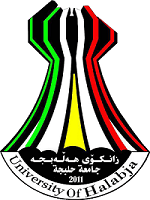Purposes in Poems in the Poems of "Ruhi Al-Aqtabi"
DOI:
https://doi.org/10.32410/huj-10482Keywords:
Objective Purposes, The Prophet's adjective, Spirituality, Love Poetry, SatireAbstract
The objective purposes in the poem “Ruhi al-Aqtibi” are considered among the important topics in the classical/ ancient Kurdish literature, as the poetic and written experience is an extension or reaction for certain personal, social, and linguistic reasons…. etc. Therefore, we decided to examine into the experience of the poet (Sheikh Abdul al-Rahman Aqtabi 1854 AD - 1910 AD) from the standpoint of descriptive and analytical research method is able to contain the objectives of the research. We concluded that, after researching and the analyzing, his poems contained five main themes or purposes, including: the flirtation that took the lion's share or (the largest part of his poetry) Where the Spiritual collection consists of (29) poems. So, we can identify the percentage of his poems according to the following topics: Satire (1), one poem (3.45%), Praise (2) (6.9%), Epithet (2) (6.9%), loving the Ahl Al-Bayit (2) (6.9%), love genre (22) (75.9%), spiritual poetry consists of many literary genres, the important and attractive thing in his poetry is satire, despite the Sunni poets’ distance from the Muawiyah Satire, but we notice in the poems of Al-Ruhi, the satire with which he (Yazid Bin Muawiyah) was satirized. Even though he's Sunni – Asha’ary.
References
- أبو زيد، سامي يوسف (2012)، الأدب الإسلامي والأموي, ط1، دار المسيرة.
- بامەرنی، نەوزاد عەبدوللا حاجی (2007)، ئایدیولوژیا د هۆزانێن (جەگەرخوین)یدا، نامەیا ماستەری، زانکۆیا دهوک، کۆلیژا ئاداب، پشکا زمانێ کوردی.
- پارسا، سید احمد (1395)، سلطان اقلیم سخن، تهران، نشر تیرگان، چاپ اول.
- الجبيلي، سجيع (2008)، فنون الأدبية في العصر الأموي, الطبعة الاولى، دار الهلال.
- خلیل، کامەران ابراهیم(2019)، کاریگەرییا لاساییکرنێ ل سەر وێنەیێ شعرا کلاسیکا کوردى، چاپا ئێکێ، سەنتەرێ زاخۆ بۆ ڤەکۆلینێن کوردى، زاخۆ.
- داد، سیما (1385) فرهنگ اصطلاحات ادبى، تهران، انتشارات مروارید، چاپ سوم.
- دهخدا، على اکبر (1377) لغت نامه دهخدا، جلد سوم، چاپ دوم، تهران، انتشارات دانشگاه تهران.
- سندى، وحید (2020)، ڕەنگڤەدانا سۆفیگەریێ د هۆزانێن جزیریدا، چاپا ئێکێ، چاپخانا گازى، دهۆک.
- ئاقتەپی، ڕووحی (2022)، دیوانا ڕووحی، بەرهەڤکرن: وحید سندی و عمران عیسا، چاپا دوویێ، دهۆک.
- شوان، ئیبراهیم ئەحمەد (2001)، سوفیگەری و شیعری ئایینی و سوفیگەری لە شیعرە کوردیەکانی مەحوی دا، چاپى یەکەم، چاپخانەى وەزارەتى پەروەردە، دەزگای چاپ و بلاوکردنەوەى موکریانى، هەولێر.
- الصفار، ابتسام مرهون (2006)، الأمالي في الأدب الإسلامي، ط3, دار المنهاج, الأردن.
- عدنان، سعید (1376)، گرایشهاى فلسفى در نقد ادبى، ترجمە: دکتر نصرالله امامى، چاپ اول، اهواز، انتشارات دانشگاه شهید چمران.
- عومەر، پەیمان محەمەد (2008)، ئەزموونى شیعریى شێخ مەمدووحى بریفکانى، نامەى ماستەر، کۆلیژى ئاداب، زانکۆیى دهۆک، دهۆک.
- المقدسي، أنيس (1932)، امراء الشعر العربي في العصر العباسي, ط1, المطبعة الأدبية. بيروت.
- نصار، نواف (2007) المعجم الادبی، الطبعة الاولى، الاردن، دار ورد للنشر والتوزیع.
Downloads
Published
Issue
Section
License
Copyright (c) 2023 Waheed Nemat Ramadan, Ayoub Haji Muhammad, Bahaddin Jalal Hamaamin

This work is licensed under a Creative Commons Attribution-NonCommercial-NoDerivatives 4.0 International License.
Authors who publish with this journal agree to the following terms:
- Authors retain copyright and grant the journal right of first publication with the work simultaneously licensed under a Creative Commons Attribution License [CC BY-NC-ND 4.0] that allows others to share the work with an acknowledgment of the work's authorship and initial publication in this journal.
- Authors are able to enter into separate, additional contractual arrangements for the non-exclusive distribution of the journal's published version of the work (e.g., post it to an institutional repository or publish it in a book), with an acknowledgment of its initial publication in this journal.
- Authors are permitted and encouraged to post their work online (e.g., in institutional repositories or on their website) prior to and during the submission process, as it can lead to productive exchanges, as well as earlier and greater citation of published work (See The Effect of Open Access).






